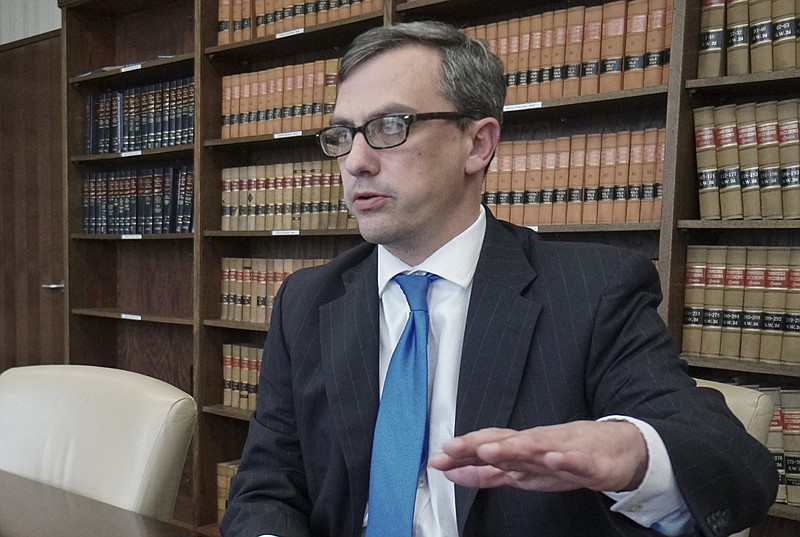A Tennessee appeals court struck down two sections of Tennessee law that allowed for longer sentences for gang members on Thursday.
The Tennessee Court of Criminal Appeals ruled that the gang enhancement statues allow defendants to be punished for the activity of others and for crimes in which they weren't involved.
That, the court said, violates the due process clause of the Fourteenth Amendment, and is therefore unconstitutional.
A spokeswoman for Hamilton County District Attorney Neal Pinkston said Friday the ruling could affect the city's Violence Reduction Initiative.
"The primary takeaway is the Court ruled it is unconstitutional to enhance a defendant's sentence simply because (s)he is a gang member," Pinkston spokesperson Melydia Clewell wrote in a news release.
"It limits when prosecutors can ask for increased punishments, so it does prohibit us from asking for more time just because someone is part of an enforcement action," Clewell said in response to a question about whether the ruling would effect the VRI.
But Fletcher said the demise of the gang enhancement statutes should have no effect on the VRI.
"VRI was never conditioned on the use of this statute," Fletcher said in a statement. "Instead, through VRI we ask the DA's office to seek the higher end of the existing sentencing range because the defendant's gang has murdered someone or is the most violent group in town. In other words, we ask the DA to push, as the prosecutor, for punishments closer to the maximum rather than the minimum."
"Yesterday's ruling changes nothing," he continued. "The DA still have that ability."
The district attorney has taken fire in recent months for his reluctance to give special attention to gang cases brought to him under the umbrella of the city's Violence Reduction Initiative.
The strategy asks police and prosecutors to push for the highest possible punishments against targeted gang members. Police are asked to make arrests they normally wouldn't and provide evidence to back them up. Prosecutors, in turn, are asked to fight for heavier-than-usual penalties in those cases.
At every step of the process, gang members should hear the same message: they're being treated differently because they violated the rules of the VRI, initiative leaders say.
But Pinkston says he has never been comfortable with that aspect of the initiative.
"We can't give anybody increased punishment just because they were arrested as part of the VRI," Pinkston in a 2015 interview. "But if [police] bring that to our attention then yeah, we see that, but we can't add on to what they would serve or not."
It's unclear whether Pinkston's office has ever used gang enhancement statutes against gang members targeted as part of VRI. In a March letter, Pinkston said that such statutes were the best way for him to prosecute gang-related cases.
"If a case doesn't meet federal criteria, the best way to ensure a maximum sentence is for investigators to prove crimes are being committed as part of a gang's business," he wrote. "This allows us to use enhancement factors in sentencing so we can ask a judge for extra prison time."
His letter escalated into a political brawl involving the chief of police, mayor and city council. Rather than address the council directly, Pinkston announced the launch of his own anti-gang initiative, declaring the mayor's initiative a failure.
The city council responded by issuing a subpoena, later withdrawn, in an attempt to get Pinkston to answer for his stance on the Violence Reduction Initiative.

